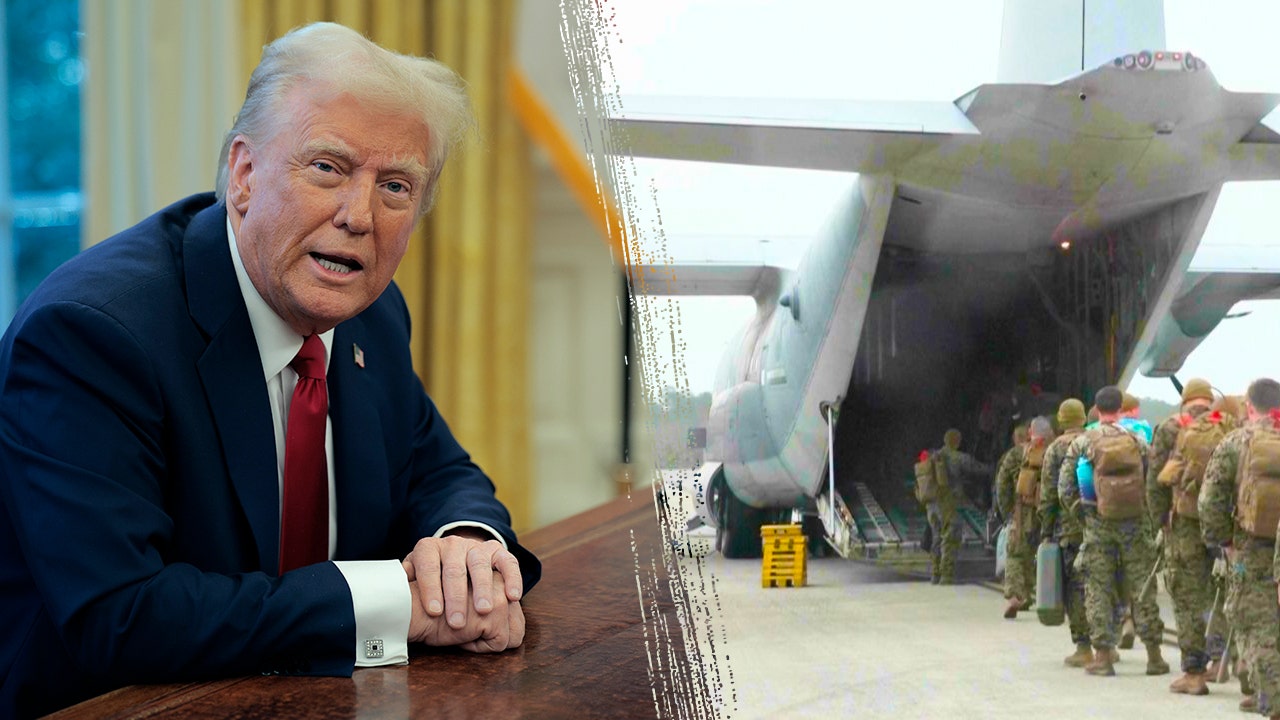Politics
Federal court blocks Trump admin from sending detained Venezuelan immigrants to Guantánamo Bay

A Federal Court Intervenes: Blocking the Transfer of Venezuelan Immigrants to Guantánamo Bay
In a significant legal development, a federal court has issued a temporary restraining order, halting the Trump administration’s plan to transfer three Venezuelan immigrants detained in New Mexico to the notorious Guantánamo Bay detention camp in Cuba. This decision comes as part of a broader effort by the administration to deport undocumented immigrants from the United States. The three men, who have been detained near El Paso, were reportedly targeted due to their alleged connections to the Tren de Aragua gang, although their lawyers argue that these charges are unfounded. The court’s ruling, granted by U.S. District Court Judge Kenneth J. Gonzales, temporarily bars the government from relocating the detainees to the controversial military prison, which has long been criticized for its inhumane conditions and associations with torture.
The Profiles of the Detained Men and the Legal Battle for Their Rights
The three Venezuelan men at the center of this case are described by their lawyers as fitting a specific profile: they are Venezuelan nationals detained in the El Paso area, accused of ties to the Tren de Aragua gang. However, their legal team contends that these allegations are false and that the men do not pose a threat to national security. In a legal filing, the lawyers emphasized the uncertainty and lack of transparency surrounding the government’s plans for the detainees, arguing that this alone justifies the court’s intervention. They also highlighted the potential violation of the men’s constitutional rights, particularly their access to legal counsel and due process. The temporary restraining order is seen as a crucial first step in ensuring that the detainees are not subjected to the harsh conditions of Guantánamo, where they would be separated from their legal representatives and placed in a facility notorious for its abusive treatment of inmates.
The Broader Context: Trump’s Plan to Expand Guantánamo for "Criminal Illegal Aliens"
This case unfolds against the backdrop of President Trump’s aggressive immigration enforcement policies, which include the detainment and deportation of undocumented immigrants. In recent weeks, the administration has begun sending detained immigrants to Guantánamo Bay, a move that has drawn sharp criticism from human rights groups and legal advocates. According to statements made by Homeland Security Secretary Kristi Noem and White House press secretary Karoline Leavitt, several flights carrying detained immigrants have already been dispatched to the Cuban detention center. The administration has framed this effort as a necessary measure to address the presence of "criminal illegal aliens" in the U.S., with President Trump vowing to expand the facility’s capacity to hold up to 30,000 such individuals.
Immigrant Rights Groups Demand Transparency and Access to Detainees
In response to the Trump administration’s actions, immigrant rights organizations have mobilized to challenge the use of Guantánamo Bay as a detention site for immigrants. These groups argue that the facility, originally established in the aftermath of the 9/11 attacks to hold terror suspects, is unfit for housing individuals accused of immigration violations. They have raised serious concerns about the lack of legal protections for detainees at Guantánamo, where access to counsel and basic due process rights are often restricted. In a letter addressed to the government, a coalition of advocacy groups, including the Center for Constitutional Rights, the American Civil Liberties Union (ACLU) of New Mexico, and the Las Americas Immigrant Advisory Center, demanded access to the detainees and transparency regarding their treatment and legal status.
The Dark Legacy of Guantánamo Bay and Its Implications for Immigrant Detainees
The decision to send immigrants to Guantánamo Bay has reignited controversy over the facility’s notorious history. For decades, Guantánamo has been a symbol of human rights abuses, including torture, indefinite detention, and the use of coercive interrogation tactics. While the facility currently holds 15 detainees, including individuals accused of involvement in the 2001 terrorist attacks, the arrival of immigrant detainees marks a troubling new chapter in its history. Critics argue that using Guantánamo to detain immigrants undermines the rule of law and perpetuates a culture of fear and abuse. The separation of immigrant detainees from the existing population does little to address these concerns, as the very nature of the facility raises serious ethical and legal questions.
A Temporary Reprieve, but the Fight for Justice Continues
While the court’s temporary restraining order offers a measure of relief for the three Venezuelan men, the broader implications of the Trump administration’s policies remain unresolved. The case highlights the ongoing tension between immigration enforcement and the protection of constitutional rights, as well as the ethical dilemmas posed by the use of Guantánamo Bay as a detention site. As the legal battle continues, immigrant rights advocates and legal experts will closely monitor developments, seeking to ensure that the rights of all individuals, regardless of their immigration status, are upheld. The outcome of this case could set a precedent for how the U.S. government handles the detention and deportation of undocumented immigrants in the future, making it a critical front in the ongoing debate over immigration policy and human rights.











